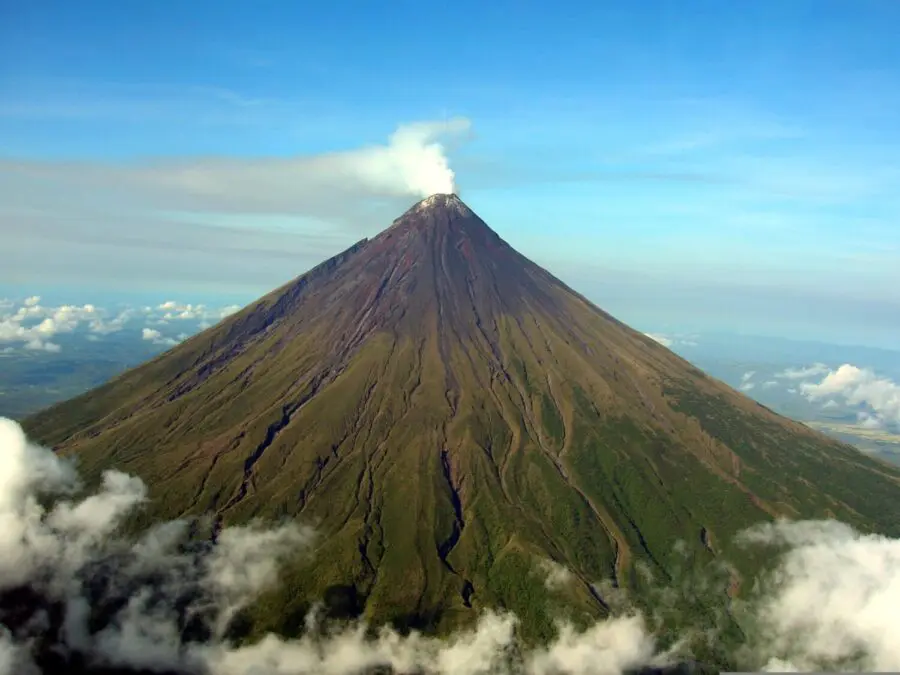Large volcanic eruptions, as you know, are capable of creating the effect of nuclear winter – blocking sunlight (this leads not only to a decrease in temperature on Earth, but also to a weakening of monsoons and precipitation) from one year to several years, due to which crops and domestic animals. Such phenomena provoke crop failures and hunger.
Scientists from the School of History and Humanities in Ireland, San Francisco State University, Rutgers, Florida (USA), Berne (Switzerland) and Zhejiang (China), as well as the Rachel Carson Center for Environment and Society (Germany) analyzed the consequences of the eruptions volcanoes that occurred from the first year of our era to 1915.
To do this, they studied the level of sulfates in ice cores of Greenland and Antarctica over the past two thousand years. It turned out that they preserved traces of ash from 156 volcanic eruptions. In addition, scientists analyzed historical Chinese documents about 68 dynasties, as well as information about military actions in the territory of the Middle Kingdom between 850 and 1911. The researchers presented their findings in the journal Communications Earth & Environment.
“We found out that episodes of the fall of the dynasties of the Chinese emperors in the last two thousand years often coincided with volcanic eruptions. This connection turned out to be complex: the cooling of the climate provoked by volcanoes increased the likelihood of conflict, and wars, in turn, increased the chances that this or that dynasty would end its existence, ”said Alan Robock, one of the authors of the study, a professor at Rutgers University.
Scientists were able to show that almost all the falls of the dynasties of Chinese emperors took place in the first ten years after major volcanic eruptions. And this happened especially often during periods when climatic anomalies associated with eruptions were superimposed on already existing military conflicts.
The change of dynasties was also facilitated by the concept of the so-called heavenly mandate, the loss of which, in the minds of the inhabitants of the Celestial Empire, was accompanied by various weather disasters. The newly-minted government could always accuse its predecessors of “moral decay” and all the troubles.
Caesar’s usurpation of power in the Roman Republic ended with a conspiracy and his assassination in March 44 BC. And then the state was struck by new severe disasters: historical chronicles have kept records of both the darkness that covered the sky shortly after these events, and the sharp cold snap and crop failures that erupted in the following years. Mass famine served as one of the factors that ultimately led to the final consolidation of power in Rome and the emergence of an empire.
Volcanoes are to blame. It is believed that the local eruption of Etna in Italy itself could partially hide the light of the sun in the summer of 44 BC. Probably, the tests that followed in the following years are also associated with volcanism: ice cores, which are extracted today from ancient glaciers, retained traces of volcanic dust that was emitted into the atmosphere around that time period.
A large international team of scientists led by Joseph McConnell of Cambridge University was able to accurately date the eruption and find its epicenter. The authors analyzed ice cores from Greenland, going back in time – starting with the deposits left by the famous eruption of the Indonesian volcano Samalas in 1257. Scientists write about the results of this work in an article published in the journal PNAS.
The peak in the content of sulfur particles, close to the time of the fall of the Roman Republic, fell exactly at the beginning (January-February) of the 43 years that followed the assassination of Caesar. Moreover, the ratios of the various sulfur isotopes in them showed that these particles reached the stratosphere and survived exposure to strong ultraviolet radiation. This indicates the power of the eruption.
In addition, some of the particles of volcanic glass were found in one of the cores. This made it possible to find out their exact composition, which is directly related to the geochemistry of the volcano that gave rise to them. Comparing the data obtained with the characteristics of volcanoes that could be active during that period, the authors identified the culprit of the troubles.
It turned out to be the Okmok volcano, located in the Aleutian Islands, near Alaska, which still retains high and potentially dangerous activity. The Okmok summit is located at an altitude of about a kilometer and is a vast caldera with a diameter of almost 10 kilometers. Apparently, it was formed as a result of an explosion that occurred in the 43 year that followed the assassination of Caesar.
Such a catastrophe could not but have a noticeable effect on the climate of the entire planet. Through computer simulations, scientists have shown that the Okmok eruption filled the stratosphere with particles that were held in it for months. As a result, temperatures in Southern Europe and North Africa could drop by as much as 7 ° C.
This was also indicated by dendrological studies: an analysis of the rings of trees growing in those years demonstrated the cooling that plants experienced in 43 and 42 BC. Famine during this period broke out not only in Rome. Chronicles point to severe crop failures even in the “granary” of the ancient Mediterranean, Egypt, which apparently facilitated its conquest by the armies of Octavian, Caesar’s heir and founder of the Roman Empire.







